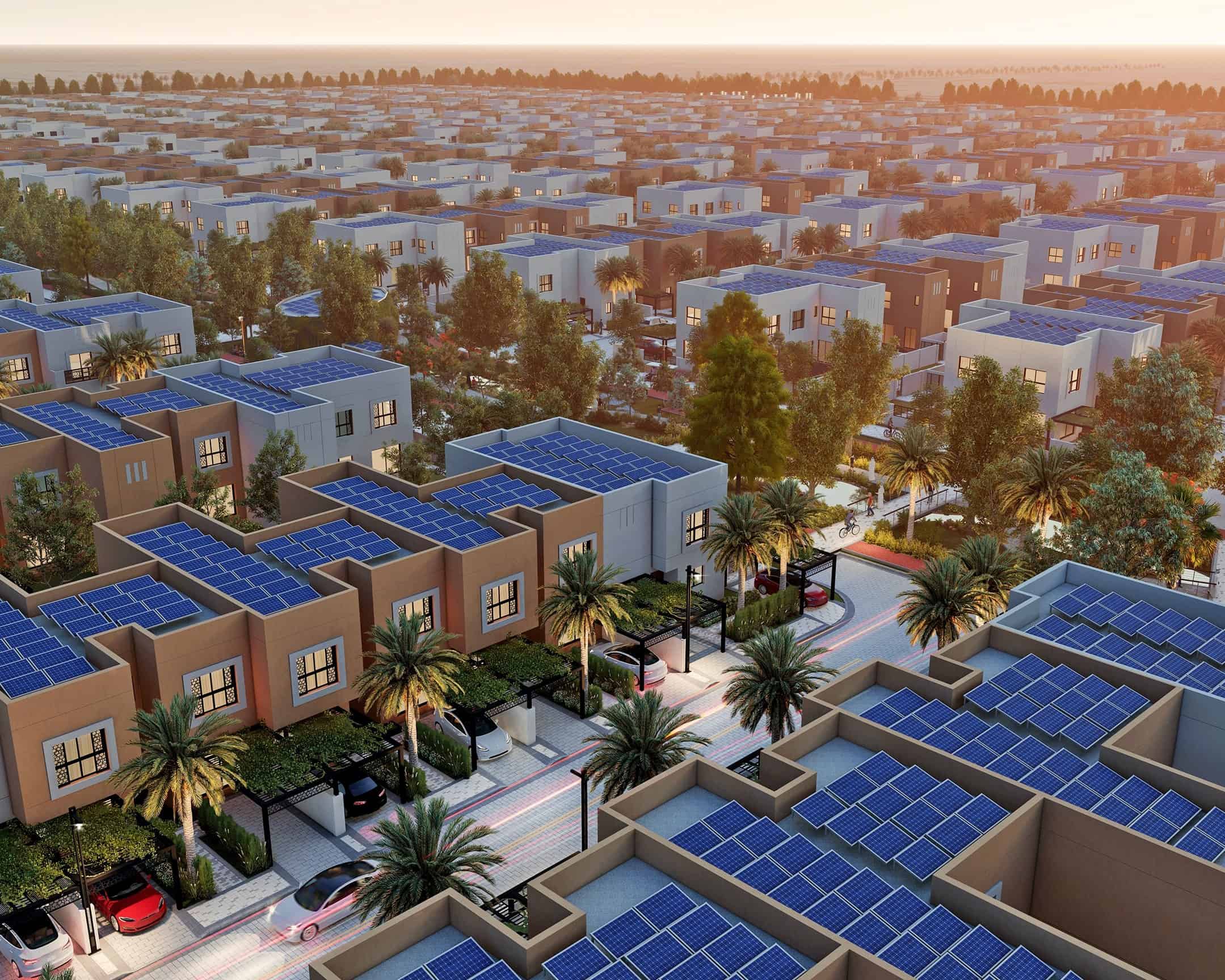Years ago, owning a smart home was almost a luxury the majority couldn’t have. However, with the current focus of governments on sustainable solutions, it’s achievable to anyone who wants one.
Undoubtedly, the recent technological updates assist many sectors in growing and building their green economy. Sustainable construction is overgrowing in the UAE, and the demand is rising as well.
UAE’s green strategy
Amidst the growing challenges related to energy resources, the UAE is embracing digital adoption to promote sustainability and ensure that GCC remains well-positioned to evolve into a power-packed digital economy.
In addition to preserving natural resources and safeguarding the ecosystem, sustainable solutions improve the quality of life. For example, sustainable architecture or construction minimizes the negative environmental impact of buildings through enhanced efficiency and moderation in using materials, energy, development space, and the ecosystem at large.
Sustainability is cheaper
The economic harm caused by climate change and pollution outweigh the costs of shifting to more sustainable lifestyles; that’s why people are looking for green solutions to their everyday needs; Chief Executive Officer of Sharjah Sustainable City, Yousif Ahmed Al-Mutawa believes.
Electric vehicles and solar PV installations in homes are essential to offset energy bills. In the UAE, residents are looking to buy houses that come as standard with innovative home technology, solar PVC, and energy-saving technology and design.
Al-Mutawa explained: “Whereas before a smart home was only a luxury the wealthy could afford and required fiber optic networks to be built into a new home or retrofitted to an existing property. With the proliferation of smart home technology and the advances in Wi-Fi connectivity, a smart home is achievable to anyone who wants one”.
On the other side, smart homes are becoming popular due to the efficiencies they can offer, as Al-Mutawa mentioned. For example, innovative home technology, switch lights and AC off when not in use, and be linked to solar PVC installations and energy storage units through energy management systems to improve energy savings further.
A sustainable city is better!
Al-Mutawa explained in an interview with TRENDS all about sustainable cities that incorporate the principles of a circular economy and eco-friendly practices, green spaces, and supporting technology into the urban environment to reduce waste, air pollution, and CO2 emissions. They are designed to reduce the carbon footprint and be fully powered by renewable energy while recycling water and waste.
In Sharjah’s sustainable city project, the team is building it with the highest standards of sustainable products and materials, following in the footsteps of The Sustainable City in Dubai. Still, with the latest best practices, some are:
- The building envelope uses Precast Wall Panels, reducing construction waste volume compared to cast-in-situ and lowering the total Embodied Carbon.
- The villa orientation avoids the sun and maximizes shading, while most south-facing facades are closed to reduce heat gains.
- Waste is utilized to create a circular economy. A biogas plant treats organic waste (food waste, green waste, and sludge) and converts a waste problem into a resource (electricity and/or thermal energy). Residues from the biogas plant will be dried and used as fertilizer for landscaping.
- A Sewage Treatment Plant (STP) to treat wastewater will produce Treated Sewage Effluent (TSE) for landscape irrigation, achieving 100 percent water recycling and avoiding tanker emissions.
Sharjah Sustainable City is developed as part of a partnership between Sharjah Investment and Development Authority (Shurooq) and Diamond Developers to meet the most satisfactory sustainability standards. The project’s total development cost is 2 billion AED (US$ 544 Million). It includes a total of 1,120 villas divided into blocks of 3-, 4- and 5-bedroom villas ranging between 2,035 sq. ft. to 3,818 sq. ft, with prices starting from AED1.39 million (US$ 378 Million).
The city is designed to cover all three elements of sustainability: social, economic, and environmental. The project’s first phase, which was launched in 2019, included 280 modern housing units and “townhouses” consisting of three, four, and five bedrooms.
Sharjah Sustainable City also provides urban farms with vertical farming, green spaces, a community mall, mosque, kid’s play area, swimming pool, fitness center, cycling & jogging track, powered by 100 percent renewable energy, with 100 percent of wastewater reused.
Beside UAE, other leading GCC countries like Saudi Arabia are getting more focused on green construction as routine energy resources are getting costlier with rising oil prices for oil, which is expected to directly or indirectly impact the real estate sector.








